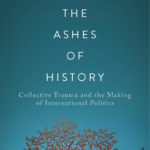This is the third and final part of a three part interview between Adam B. Lerner (ABL) and Patrick Thaddeus Jackson (PTJ). It is the first instalment of a new series of interviews on Duck of Minerva entitled Quack-and-Forths. Part I can be accessed here and Part II can be accessed here.
ABL I agree that baseball may be the most lab-like and therefore ‘scientific’ of the major sports, but I would argue that basketball is the most musical. It’s a game of rhythms punctuated by crescendos and drama. While these can be dissected in ‘scientific’ terms relating to scales/octaves/etc., no analysis compares to hearing/seeing Lebron conduct an orchestra.
PTJ I hear people talking about the poetry of basketball, but I can’t see it. Football, *proper* football (not the U.S. version where large men in body armor smash into one another repeatedly), now that I can see and appreciate. I don’t know why that is, but basketball simply looks to me like a lot of running, and don’t get me started on ice hockey, the “one half” in the “three and a half” major US sports…
ABL Okay, beyond sports, I think your assessment of the futility of asking political scientists to embrace pluralism is wise and your call for instead promoting education regarding ‘ways of knowing’ may be an appropriate path forward. However, your reference to the historical development of mainstream political science also alludes to another barrier for scholars interested in pluralism: the narrowness of pathways to influence.
To be sure, most wise international studies scholars recognize that the impact of their work is, more often than not, indirect, subtle, and difficult to assess concretely. Nevertheless, there is another, adjacent discipline — economics— that, for better or for worse, has historically been quite successful in carving out direct lines to the halls of power. Nowadays, presidents are expected to have Councils of Economic Advisors and plenty of corporations hire in-house economists to guide their strategy. These experts promote a certain way of thinking about problems and assessing solutions (oftentimes creating self-fulfilling prophecies). Finally, together these links lead to grant money, prestigious job titles, and screaming fans (I’m just speculating as I’ve never been to an economics conference). Political scientists who want the same authority with regards to questions of politics that economists get with regards to questions of economics may be wise to emulate their episto-methodological MO. That way, they may finally be able to vanquish the ill-informed hordes of K street political advisors…
By describing the problem in this way, I’m trying to put more of the onus for self-reflection on the pluralists. Interestingly enough, back in the early 20th century the field of international studies developed in conversations between journalism, history, and normative political theory, all synthesized for the purposes of policy analysis. Yet the contemporary pluralists that follow in this tradition seem the most alienated from the policy debates. Where and why did these paths deviate? And what, in turn, can contemporary pluralists do to demonstrate the policy relevance of such synthetic approaches?
PTJ I am well aware that I am a serious minority in the field in that I don’t *care* about whether my scholarly work makes an impact in the policy sphere. My *teaching* work, now that’s a different matter, since a lot of my students are budding policy wonks and go right into the machine upon graduation. If I can equip them to bring a critical intellectual disposition into that work, well, that’s all the “influence” I want. I have colleagues for whom it’s a really important matter whether X or Y course of action is better supported by the available body of theory and evidence, and who earnestly maintain that their policy preferences are grounded in some set of scientifically defensible results or findings. More power to them! I lack their epistemic confidence in my own conclusions when it comes to practical political action.
I didn’t get into this game in order to determine the proper course of action for achieving some worldly goal, however desirable. I got into this because the problem of the coexistence of different communities posed some intellectual puzzles that I found intriguing. (As to why I found them intriguing, well, I have nothing to offer there except autobiography.) The unity of science position and its priority-of-science implication purported to give a universal basis for such coexistence, a neutral ground on which everyone could agree unless they were irrationally denying science — basically the universal liberal order conceptual move in an epistemic space. That’s a powerful constitutive myth, maybe the master myth of the modern era, and scholarly fields and disciplines that incorporate it into their everyday professional practice can ride the wave to all kinds of worldly influence. And not just fields and disciplines, but individual scholars and research projects too! Even if the field as a whole doesn’t speak with a single neopositivist voice, a scholar who does so can always find someone willing to listen, inasmuch as scholarly credibility plays an important political role in practitioner discussions.
Parenthetically, I think the story of economics achieving influence is ultimately more about a) the dominance of business and commerce in a market society, plus b) the way that post-Marshallian marginal analysis formalizes the core value-proposition of political liberalism, the autonomous individual, combined with c) the set of professional networks that link economists to the apparatus of economic policymaking. There are radical political economists who use pretty sophisticated neopositivist techniques to evaluate policies, and they don’t get named to the Federal Reserve’s Board of Governors. So it’s not only methodology that explains the influence of (certain kinds of) economists.
At the end of the day, I still think that Weber had it right: you can choose the path of action, influence, and making things happen in practice, or you can choose the path of contemplation, rumination, figuring things out intellectually. If you really want *authority*, then scholarship is not the vocation you have. Now, certainly some academics use their perch as a way to generate intellectual capital that spends well in the policy sphere, and some universities positively reward that kind of impact. But — and this is the point I really want to insist on — *not everyone does, and not everyone should*. There is an important role that the academy can play as a place temporarily sheltered from the currents of influence and relevance and impact, and that’s needed in direct response to the massively overwhelming social pressures pressing us in the opposite direction.
Historically, the unity of science position aspired to resolve these tensions: if science was one, always and everywhere the same, then the best scientists would also be the best authorities on practice, and science could *correct* practice, especially political practice in a democracy where the people might, you know, elect the wrong person or choose the wrong policy option. Practicing that kind of science meant not caving to political pressure, and in the U.S. during the Cold War especially, that meant not supporting Communism or, frankly, not being explicitly anti-religious (the fascinating thing about logical positivism in the U.S., as John McCumber points out, is that in practice it relied on a “stratified naturalism” that *deferred* the question of whether there was a God, rather than a militant atheism that would have run into massive popular opposition). My point is that what was regarded as correctly and appropriately “scientific” was what affirmed rather than challenged the basic presuppositions and commitments of the broader U.S. society. So the capacity of unified science to correct political practice was actually pretty limited. In IR we see that in the failure of the “realist gambit” to redefine science in a way that supported the kind of historicist approach to contextual judgment prized by folks like Morgenthau and Niebuhr: because the procedures and conclusions of those realists went against the basically liberal presuppositions of U.S. politics, they were almost unintelligible, and had to be translated into a liberal idiom in order to make sense. In so doing, they lost their critical edge, and became behavioral propositions to be evaluated against systematic empirical evidence.
So what I keep coming back to is, what price “influence”? Especially since the actual capacity to do otherwise on an international or global scale is, in my view, pretty limited in the short- to medium-term. In the end, isn’t it more likely to be the novelists and filmmakers and artists who explicitly work on imagined futures who might *actually* shift the boundaries of the sensible and the plausible? If social scientists keep insisting on any one correct pathway to producing knowledge, might they even cut off those transformative potentials, making it possible for skeptics to dismiss them out of hand as not supported by the data or whatever?
In the end, what I think we need are *better stories* about international affairs, better stories about ways that human beings might — to quote Kim Hutchings — engage in “experiments in ‘being with’” one another. And stories that might make such experiments more feasible, more plausible.








0 Comments
Trackbacks/Pingbacks